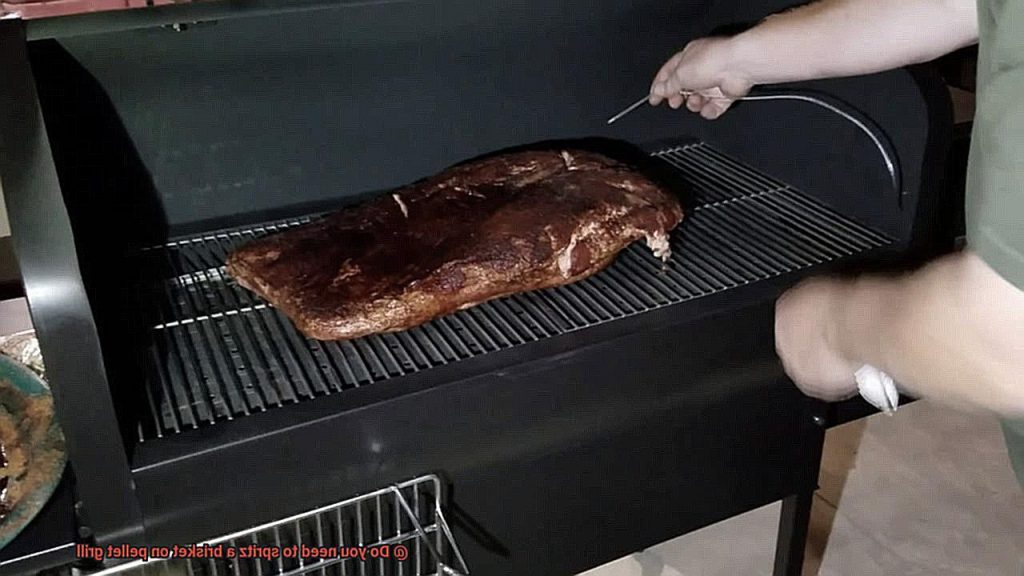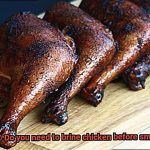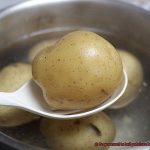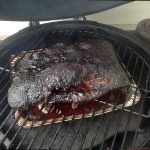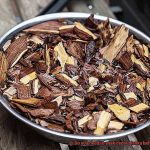Picture this: the savory smell of a perfectly smoked brisket wafting through the air, making your mouth water in anticipation. For outdoor cooking enthusiasts, there’s nothing quite like biting into a succulent brisket that has been cooked to perfection. But achieving that level of deliciousness requires getting all the details right, especially when it comes to cooking brisket on a pellet grill.
One point of contention among pellet grill aficionados is whether or not to spritz your brisket while it cooks. To spritz a brisket, you mist it with a liquid such as apple juice, vinegar-based solution, or even a cola-based mixture to keep the meat moist and infuse it with flavor.
So, what’s the verdict? Do you need to spritz a brisket on a pellet grill? Some believe that spritzing helps produce tender, juicy, and flavorful results while others argue it’s unnecessary and can even ruin your brisket. In this post, we’ll explore all sides of the debate. We’ll discuss the benefits and drawbacks of spritzing, including different liquids used for spritzing. By the end of this post, you’ll have all the information you need to decide if spritzing is right for you – whether you’re an experienced pro or just starting out with pellet grilling. So let’s dive in and settle this debate once and for all.
Contents
Benefits of Spritzing a Brisket on a Pellet Grill
If so, spritzing might be the technique you’ve been searching for. Spritzing involves spraying a liquid mixture on your brisket during the smoking process and can significantly enhance the flavor and texture of your meat. Let’s dive into the many benefits of spritzing a brisket on a pellet grill.
First and foremost, spritzing helps keep your brisket moist throughout the cooking process. As meat cooks for hours, it tends to dry out, resulting in tough and chewy meat. Spritzing adds moisture to the surface of the brisket, which penetrates into the meat as it cooks, keeping it succulent and tender.
But that’s not all spritzing offers. The liquid mixture used for spritzing can include a variety of flavorful ingredients such as spices, herbs, and even beer or apple cider vinegar. This infusion of flavors enhances the overall taste profile of the brisket, making it more delicious and enjoyable to eat.
Additionally, spritzing helps create a mouth-watering bark on the surface of your brisket. The layer of liquid mixture caramelizes as it cooks, forming a crispy and flavorful crust. This bark adds texture and flavor to your brisket, making every bite an explosion of taste.
While some argue that spritzing interferes with the formation of good bark, others believe that it’s a necessary step in producing tender and flavorful brisket. If you do choose to spritz your brisket on a pellet grill, remember to experiment with different liquids and frequencies to find what works best for you.
Arguments Against Spritzing
While many pitmasters swear by the technique, there are some valid arguments against it that are worth exploring in-depth.
Firstly, let’s talk about time management. Spritzing requires opening the lid of the pellet grill every time you do so, which can release heat and extend the cooking time. This is especially true for pellet grills with a long smoke cycle that can take up to two hours to complete. So, if you’re looking to speed up the cooking process, skipping the spritzing may be beneficial.
Furthermore, spritzing can lead to inconsistent results if not executed correctly. Careless spritzing can over-saturate some parts of the brisket while under-saturating others, resulting in an uneven cook that affects the texture and flavor of the meat. Additionally, different spritzing liquids can produce different results, making it challenging to find the right balance of ingredients.
Lastly, some argue that spritzing is entirely unnecessary. A well-cooked brisket doesn’t need any extra moisture or flavor added during the cooking process. Instead, letting the brisket cook undisturbed until it reaches its desired internal temperature and resting it before slicing allows for even distribution of juices throughout the meat. This results in a tender and juicy brisket without needing to spritz.
Factors to Consider When Deciding Whether to Spritz or Not
As a pitmaster, deciding whether to spritz your brisket on a pellet grill or not can be a daunting task. However, with some research and consideration of several factors, you can make an informed decision to achieve a delicious outcome.
Firstly, let’s focus on bark formation. If you prefer a thick and crispy bark, avoiding spritzing may be the way to go. But if you’re willing to sacrifice some bark for a more tender and juicy brisket, spritzing with liquids like apple cider vinegar or beer can help achieve that desired result.
Secondly, consider the type of wood pellets you’re using in your pellet grill. Milder woods like apple or cherry naturally retain more moisture, so spritzing may not be necessary. However, stronger woods like hickory or mesquite can cause the meat to become dry and tough; hence, spritzing can help keep it moist and juicy.
The size of your brisket also plays a role in the decision-making process. Larger briskets may benefit from occasional spritzing to keep them moist throughout cooking. Conversely, smaller ones may not require any spritzing at all.
Lastly, personal preference is critical. Some pitmasters swear by spritzing and believe it enhances the flavor and tenderness of the brisket. Others prefer to let the meat speak for itself and avoid any additional moisture. Ultimately, it’s up to you to experiment with different techniques until you find what suits your taste buds.
Different Liquids for Spritzing
As an expert in different liquids for spritzing, I am here to share with you some exciting options that will elevate your grilling game to new heights.
Let’s start with apple juice. This sweet and tangy liquid is a popular choice amongst pitmasters as it can add a fruity flavor to your brisket while also keeping it moist and juicy. For an extra kick of flavor, try mixing apple juice with other liquids like vinegar or Worcestershire sauce to create a more complex taste profile.
If you’re looking for something with a bit more depth, consider using beer as your spritzing liquid. The hoppy and malty flavors in beer are a perfect match for the smoky taste of the pellet grill. Plus, the carbonation can help to tenderize the meat and create a more succulent end result. Try experimenting with different types of beer to find the perfect match for your taste buds.
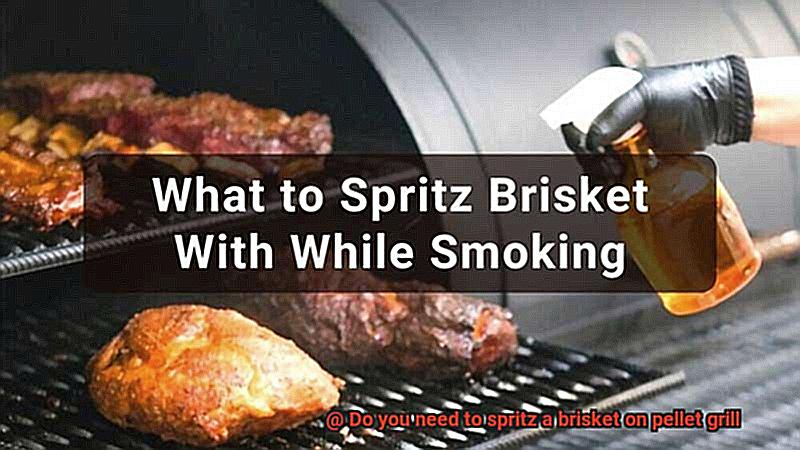
For those with a sweet tooth, Coca-Cola may be just what you need. The high sugar content in this soda can help to caramelize the meat and create a crispy outer layer while adding a touch of sweetness. It’s like having a secret ingredient that no one else knows about. But be careful not to overdo it – too much sugar can cause burning and ruin the flavor.
But wait, there’s more. Other liquids that can be used for spritzing include beef broth, vinegar, or even hot sauce. Each has its own unique benefits and can help to enhance the flavor of your brisket in different ways. Beef broth adds richness and depth of flavor, vinegar adds tanginess, and hot sauce adds heat and spice.
How Often Should You Spritz?
Firstly, let’s consider the type of pellet grill you’re using. Grills with built-in water pans help keep the meat moist, meaning you may not need to spritz as often as you would on a grill without one. Taking this into account can help you decide how frequently you should spritz.
Secondly, don’t forget about the size of your brisket. A larger brisket takes longer to cook and may require more frequent spritzing to prevent it from drying out. However, a smaller brisket may not need as much attention. Adjusting your spritzing frequency based on the size of your meat can help ensure it stays juicy and flavorful.
Ultimately, how often to spritz is a matter of personal preference and your specific cooking conditions. Some grill masters swear by spritzing every hour, while others only do it once or twice throughout the entire process. Keep a watchful eye on your brisket and adjust your spritzing frequency as needed based on how it’s cooking.
But let’s not forget the fun part – liquid options. From apple juice to beer to Coca-Cola (yes, you read that right), there are countless flavorful liquids to experiment with when spritzing your brisket. Just remember that whatever liquid you choose, make sure it complements the flavor of your meat.
Tips for Getting the Best Results with Spritzing
If you’re planning to spritz your brisket on a pellet grill, it’s important to keep in mind that timing is crucial. Spritzing too early can wash away any rub or seasoning applied to the meat, while spritzing too late can prevent the liquid from penetrating the meat due to the crust that has already formed. A good rule of thumb is to start spritzing your brisket after it has been on the grill for at least three hours and then continue to spritz every hour.
It’s also important to be mindful of the liquid you use for spritzing. While water and apple cider vinegar are popular choices, using other liquids like fruit juices or beer can add more flavor and enhance the taste of your brisket. However, it’s important to note that some liquids contain sugars that can burn easily, so monitoring your brisket closely and adjusting your cooking time and temperature accordingly is necessary.
Using a good quality sprayer or brush for applying the liquid is also crucial for getting the best results with spritzing. A cheap sprayer may not distribute the liquid evenly, leading to uneven cooking and potentially dry spots on your brisket. A silicone brush is also an excellent option as it allows you to apply the liquid without disturbing the bark or crust on the meat.
In addition to these tips, it’s essential to monitor your brisket closely throughout the cooking process when using spritzing. Spritzing can impact the cooking time and temperature of your brisket, so adjusting accordingly if needed is necessary. By following these tips, you can ensure that your brisket stays moist and flavorful throughout the cooking process while maintaining an even and crispy bark.
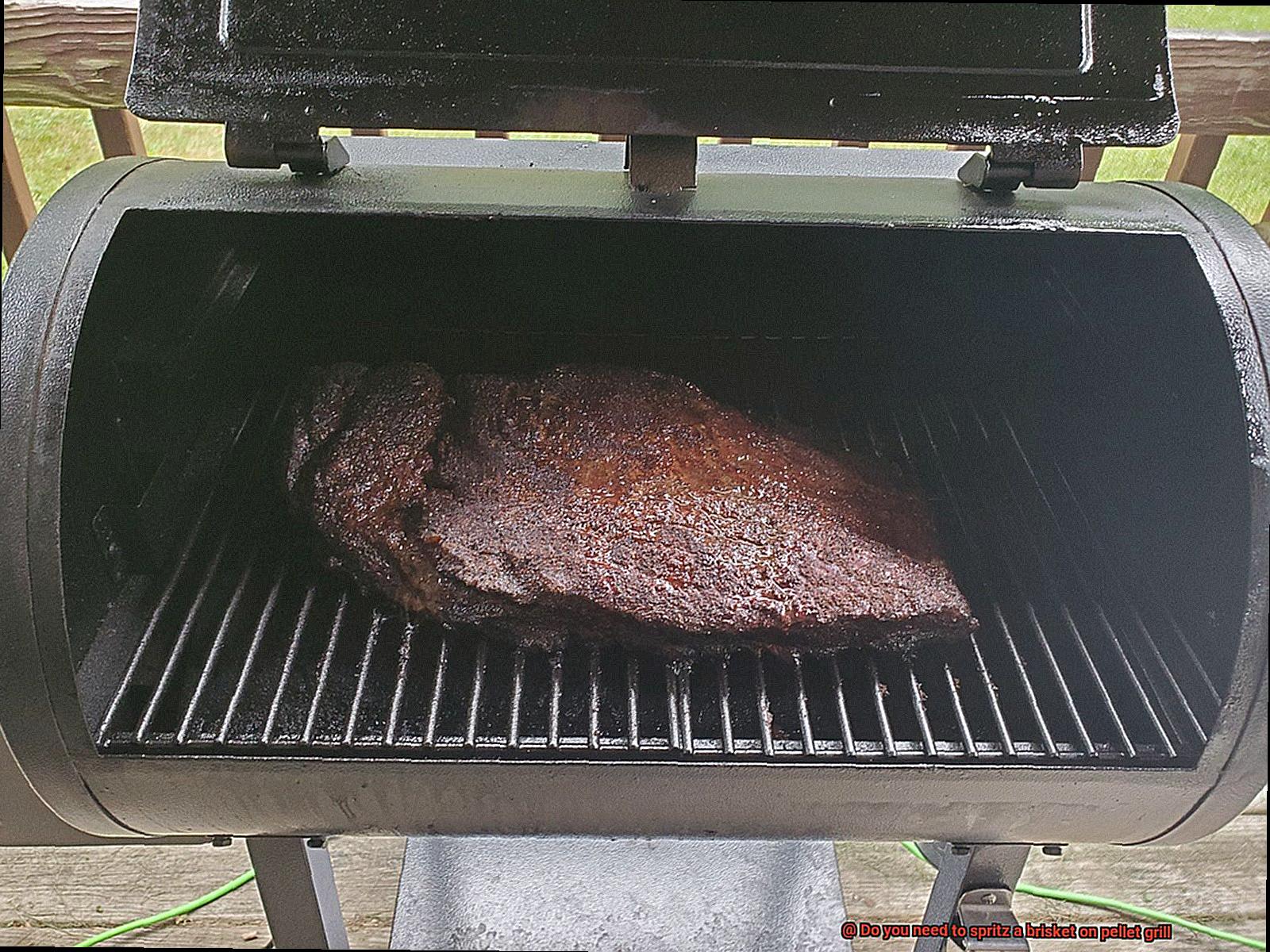
Common Mistakes to Avoid When Spritzing
Spritzing your brisket on a pellet grill is a game-changer, but beware of these common mistakes that can ruin your meal.
First and foremost, remember that spritzing is meant to keep the surface of the brisket moist, not drenched. Spritzing too often can wash away the seasoning and rub, resulting in a bland taste. So, find the right balance and spritz at the appropriate time during the cooking process.
Next up, not all spritzes are created equal. Some people prefer water, while others like apple cider vinegar or apple juice. Choosing the wrong spritz can be a recipe for disaster. Experiment with different types of spritzes to find the one that complements your flavor profile.
Timing is everything when it comes to spritzing. Spritzing too early can slow down the cooking process and result in an undercooked brisket. On the flip side, spritzing too late can lead to a dry and tough brisket. It’s essential to avoid both extremes and find the perfect balance.
In addition to timing, over-spritzing can make your brisket soggy and mushy. Just like with any cooking technique, it’s vital to find the right amount of spritzing that works for your specific brisket. Start with a light spray and adjust as needed.
To recap, here are some common mistakes to avoid when spritzing your brisket:
- Spritzing too often
- Using the wrong spritz
- Spritzing too early or too late
- Over-spritzing
Conclusion
After delving into the ongoing debate among pitmasters about whether to spritz a brisket on a pellet grill, it’s clear that there are benefits to this technique. Spritzing can keep your brisket moist and infuse it with flavor, resulting in a mouth-watering bark that will tantalize your taste buds.
Factors such as wood pellet type, brisket size, personal preference, and desired bark formation should all be considered when deciding whether or not to spritz. Experimenting with different liquids like apple juice, beer, Coca-Cola, vinegar-based solutions or hot sauce can also add depth of flavor to your brisket.
Timing is key when using spritzing techniques on a pellet grill. Spritz too early or too late can affect cooking time and temperature while over-spritzing can lead to soggy and mushy meat. Striking the right balance is crucial for achieving perfectly smoked brisket.
Avoid common mistakes such as over-spritzing or using the wrong liquid mixture for spritzing by following these tips.

